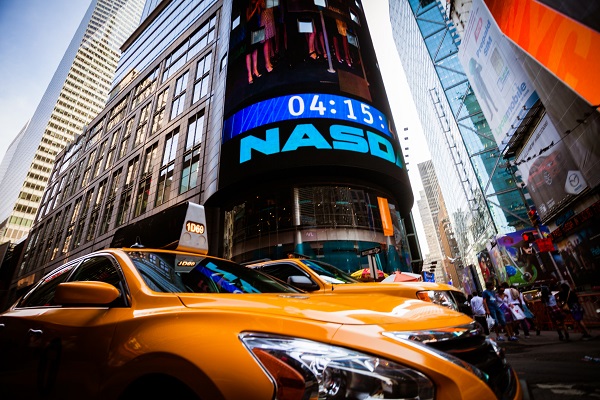Market snapshot: investors sitting on their hands, for now
23rd May 2023 08:39
by Richard Hunter from interactive investor
It was a quiet trading session on Wall Street as debt ceiling speculation dominated and that nervousness has spilled over into Europe Tuesday. Our head of markets has the latest.

Ongoing debt ceiling negotiations left investors sitting on their hands and unwilling to commit in the absence of an agreed resolution.
However, after Wall Street closed Monday, a further statement was released stating that progress had been made and, perhaps most importantly, with President Biden reassuring that “default is off the table”. The comment could well lead to some investor relief even if the details of any agreement historically tend to come at the eleventh hour of such talks.
- Invest with ii: Buy US Stocks from UK | Most-traded US Stocks | Cashback Offers
In the meantime, the Federal Reserve’s stance on its interest rate policy continued to attract attention. While one Fed member mentioned that his would be a “close call” on whether to pause or hike at the June meeting, another stated that another 0.5% of hikes could yet be required. The resilience of the US economy, with a tight labour market and little discernible effect on consumer spending, has led to speculation that such strength would be sufficient to withstand further hikes if necessary.
The developments have also pushed back consensus thoughts of rate reductions over the summer until the end of the year at the earliest, although this still remains at odds with the current Fed rhetoric.
In a muted trading session, the Nasdaq added 0.5% as the likes of Alphabet Inc Class A (NASDAQ:GOOGL) and Meta Platforms Inc Class A (NASDAQ:META) gained. Mega cap technology stocks have more recently become an investment destination as something of a defensive play, based both on their ubiquity and recent strength as evidenced during the current reporting season.
The Nasdaq is now ahead by 21.5% this year, although still some 19% below the level at which it began 2022. The benchmark S&P500, which also has a relatively large tech exposure, has added 9.2% in the year to date, while the more traditional Dow Jones Industrial Average has managed a gain of just 0.4%.
Asian markets were mixed, with the most recent switch of attention still in play. Some disappointment over the fact that China resisted further stimulus despite some wavering economic data has thrown cold water over the expected strength of its rebound following the removal of Covid-19 restrictions, while both the property sector and youth unemployment remain concerns.
On the other hand, Japan continued its recent rally which has taken the Nikkei index to multi-decade highs, with manufacturing activity expanding and with the service sector hitting record growth. The weakness of the yen against a US dollar which has seen renewed interest as a haven given ongoing debt ceiling negotiations, should add an extra dimension to the strength of its exports.
In the UK, the mood was also mixed. The latest release of UK government borrowing rose sharply for the month of April due to a combination of higher interest rate payments on the debt, an increase in benefit payments and the ongoing cost of energy support schemes.
Inflation and retail sales data over the next few days will provide more colour, where inflation is expected to remain high but in single figures as pressures from food prices and a robust labour market persist. The latter has proved inflationary in light of the current round of pay rises being negotiated across various sectors. Often touted as something of a barometer for the wider UK economy, the FTSE250 dropped on the open but has managed a gain of 2.1% so far this year.
- Stockwatch: time to buy this contrarian small-cap on the cheap?
- 10 great UK shares that Warren Buffett would pick
The premier index also dipped in opening exchanges, with some buying interest among financial stocks unable to stem the declines seen elsewhere. Retail stocks came under pressure ahead of an economic release on Friday, while RS Group (LSE:RS1), formerly known as Electrocomponents, lost some ground after reporting stronger revenue and profit growth, but a slightly weakening trend over recent quarters.
Despite the insipid opening, the FTSE100 has added 4.1% so far this year, buoyed not only by its combination of defensiveness and attractive dividend yields, but also due to its exposure to a hitherto robust US economy, which has attracted some institutional interest.
These articles are provided for information purposes only. Occasionally, an opinion about whether to buy or sell a specific investment may be provided by third parties. The content is not intended to be a personal recommendation to buy or sell any financial instrument or product, or to adopt any investment strategy as it is not provided based on an assessment of your investing knowledge and experience, your financial situation or your investment objectives. The value of your investments, and the income derived from them, may go down as well as up. You may not get back all the money that you invest. The investments referred to in this article may not be suitable for all investors, and if in doubt, an investor should seek advice from a qualified investment adviser.
Full performance can be found on the company or index summary page on the interactive investor website. Simply click on the company's or index name highlighted in the article.